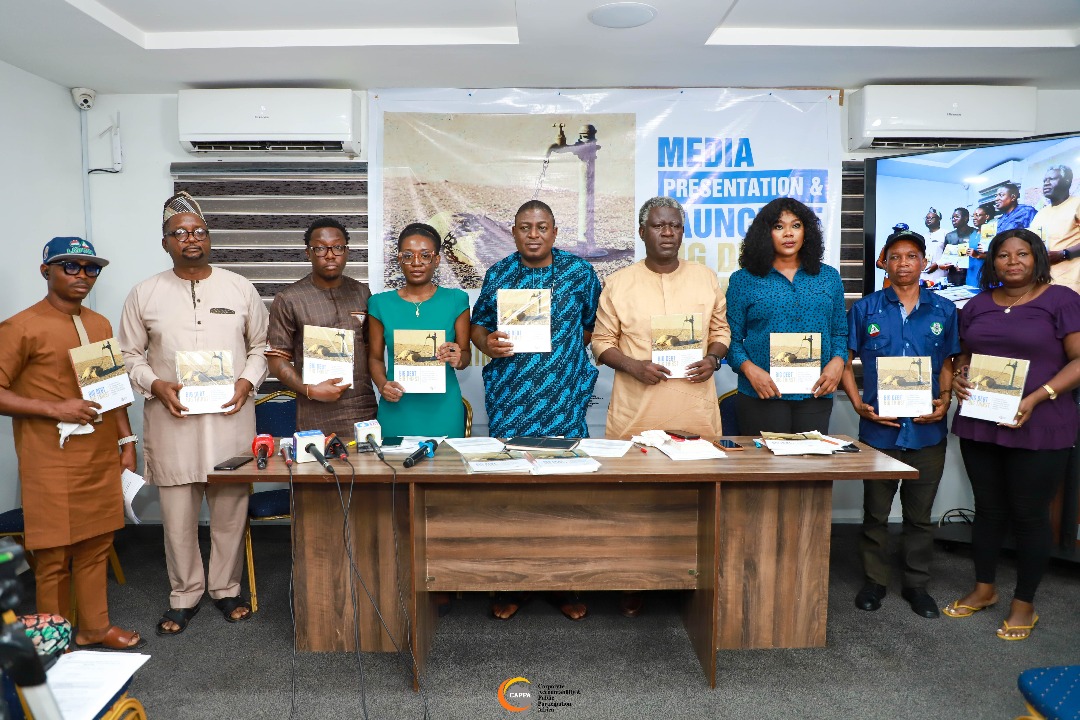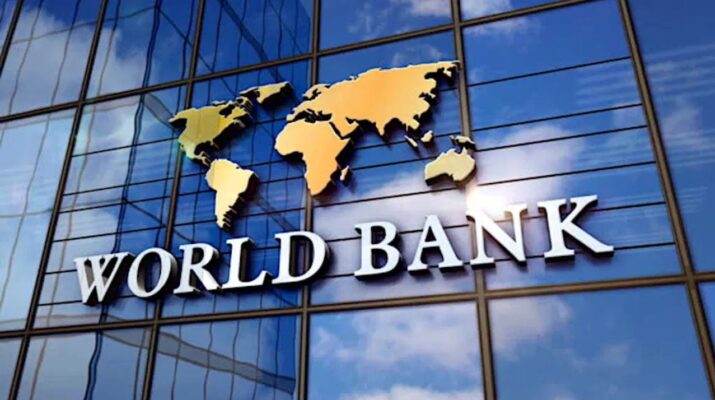Disenchanted by the constant failure of projects funded with loans from the World Bank and International Monetary Fund (IMF) for over 80 years, especially in Africa and other less developed countries of the world (because the loans often end up in private pockets), activists drawn from civil society, academics and communities across Nigeria have rejected new loans and projects sponsored by the Breton Woods institutions, insisting that it is time the World Bank and IMF ceased to exist
By Edu Abade
For all its ‘misleading’ role in cajoling African countries, including Nigeria, to take loans with long-term repayment plans that eventually end up in the pockets of western countries and their African collaborators for decades, especially since the introduction of Structural Adjustment Programme (SAP) by military juntas, it is time for governments of the continent to end any affiliation with the Breton Woods Institutions- The World Bank and International Monetary Fund (IMF)- and indeed write their obituaries!
Specifically, since their establishment at the Breton Woods Conference in July 1944 (and officially commenced operations on December 27, 1945), less developed countries have accused them of focusing on the pursuit of private interests rather than public interests in that loans and grants have ended up dissolving into private hands, especially in Africa where they advise leaders of the continent on phantom projects and programmes that had failed to advance the public good.
The above was the verdict on March 28, 2025 in Lagos at a media presentation of a report titled: Big Debt, Big Thirst: A Case Study of World Bank Supported Projects in Ekiti, Rivers and Bauchi States by the Corporate Accountability and Public Participation Africa (CAPPA), as well as its partners from Public Services International (PSI), Federation of Informal Workers of Nigeria (FIWON), academics and community representatives.
Various speakers who interrogated World Bank’s pattern of embarking on projects that undermine development in Nigeria and Africa faulted its method of implementing programmes funded through loans on the continent, insisting that a huge proportion of such loans and the interests paid on them usually find their way to the western world and the private pockets of the African collaborators and without concrete evidence of accomplishing such projects.
In his intervention, Dean, Faculty of Social Sciences, University of Lagos, Professor Adelaja Odutola Odukoya, pointed out that the World Bank always de-market Africa since its projects undermine deliberate development efforts by referring to such projects and ‘moderately unsatisfactory’ in their reports just to keep the continent in perpetual bondage and indebtedness.
In his words: It is actually time to begin to write the obituary of the World since it has not benefitted Nigeria and Africa in any meaningful ways for over 80 years since inception in 1944.”
On their part, Regional Secretary for Africa and Arab Countries, PSI, Comrade Daniel Oberko and Community Mobiliser with CAPPA, Gideon Adeyeni who gave their goodwill messages virtually, as well as, human rights activist, Hassan Taiwo Soweto and General Secretary of FIWON, Gbenga Komolafe, maintained that given the World Bank’s penchant for failing Africa, the continent must of necessity wean itself from the influence of the Breton Woods Institutions.

In his remarks titled: World Bank’s Privatisation Reforms for Water Supply Continue to Fail Citizens and Local Communities, Executive Director of CAPPA, Akinbode Olwafemi, said the findings of the report was disheartening, in that it examined the ongoing implications of privatisation reforms being advocated by international financial institutions, particularly the World Bank, and revealed a disturbing pattern of systemic failures that continue to compromise, essential utilities and especially water access for millions of Nigerians.
“There is undeniably a crisis of potable water availability in Nigeria and across much of Africa. However, public discourse around this critical issue frequently attributes the problem to factors such as rapid population growth, climate change, ageing infrastructure, and weak governance structures that impact the performance of public water systems.
“But our research reveals that the water crisis confronting Nigeria and much of Africa cannot simply be attributed to environmental or demographic pressures alone but also the predictable outcome of decades-long state withdrawal from public investment, coupled with the aggressive imposition of neoliberal policies falsely presented as pathways to development.
“In this context, we have observed growing debates about water accessibility, particularly around whether water should remain a fundamental public good, universally accessible by right, or be treated as a market-driven commodity, subject to the impersonal forces of profit-oriented supply and demand,” he stated.
He maintained that privatisation and commercialisation are widely promoted as efficient solutions to public sector shortcomings, but that the proponents of this approach argue that market mechanisms naturally foster investment and operational efficiency, adding: “Yet, the empirical reality from Ekiti, Rivers and Bauchi states tells a markedly different story. Instead of improved water access and infrastructure, citizens experience steep tariff hikes, workforce downsizing, diminished public accountability and continued systemic inefficiencies.
Oluwafemi also expressed deep concern that the World Bank’s Third National Urban Water Sector Reform Project (NUWRSP3), supported by a $250 million loan from the International Development Association, promised transformative results for state water sectors through privatisation and corporatisation.
“Yet our findings reveal that five years after the project’s completion and with a national debt repayment stretching over forty years, local communities remain deeply underserved and disappointed. Systemic issues such as lack of managerial accountability and inconsistent power supply, which were flagged as major challenges under public management, remain unaddressed and even exacerbated under this private-driven reform framework.”
Assistant Director of CAPPA, Zikora Ibeh and Officer in charge of Water Desk at CAPPA, Sefa Ikpa, explained that in Ekiti State, where substantial investments were made in critical infrastructure like the Ero and Ureje dams under the NUWSRP3, residents of Iworoko and Olorunsogo (Zones 1A-C, Zone 2 and Zone 4), paid between N5,000 and N50,000 to obtain prepaid water meters and piped connections to central water points in Ado-Ekiti, but continue to suffer water deprivation.
“When engaged, many community members nostalgically reference the 1990s as the last period when they had consistent access to potable water-ironically, a time when water utilities were publicly managed.
“Similarly, in Bauchi State, the loan secured for infrastructure upgrades and the corporatisation of the state water board has failed to resolve chronic water scarcity, primarily due to persistent electricity shortages.
“This situation reinforces our long-held conviction that the privatisation of essential utilities, often heralded as the panacea for public sector inefficiencies, frequently proves anything but infallible.
“The privatisation of electricity in Nigeria underscores this point clearly. It is hard to argue that Nigerians have benefited from this shift where many have found themselves burdened by crazy and outrageous bills, all the while receiving little or no energy. This absurdity is heightened by the recent introduction of different consumption bands, which only serves to emphasise the comic tragedy of the situation.
“The dysfunction evident in Nigeria’s national electricity supply similarly afflicts our water systems. Corporatised thirst, privatised water, privatised light and enormous debts imposed upon Nigerians and future generations, yet the taps remain dry, leaving communities continually thirsty.
“At this point, it is essential to also state that public services operate within an interconnected and fragile ecosystem-where the effectiveness of one sector invariably impacts another. Our findings specifically highlight how inadequate electricity supply directly undermines the performance and reliability of water supply systems across the three states, among other issues.”
They explained that the case of Rivers State remains more pathetic following its complexity, adding that after disbursing an initial $30million for the water project, the state was made to pay an interest of over $1million to the World Bank on a loan that should have been repayed in decades.
“The NUWRSP3 in Rivers State, designed to enhance water supply services for the over 1.5 million residents in the Obio-Akpor area of Port Harcourt, was initially envisioned to be a collaborative effort between the World Bank and the African Development Bank (AfDB).
“However, ineffective coordination between the two financial institutions and procurement challenges led to severe delays in advancing the project and culminated in the World Bank ultimately withdrawing its support.
“The withdrawal of World Bank support mid-project exemplifies the consequences of inter-institutional misalignment even in the so-called privatisation models and the sometimes-distorted nature of international development financing where rigid timelines and loan conditions override practical realities and public interest, leaving communities in dire need unmet.”
Speaking further, Oluwafemi lamented that despite the failures the burden of debt repayment persists, saddling citizens with enormous financial obligations. The loans, denominated in foreign currency, divert precious and scarce monies away from urgent public investments, further exacerbating economic hardship amidst soaring inflation and poor economic outlook. A pertinent question thus arises: Who takes responsibility for these failures.
He explained that an examination of the ideological underpinnings of the World Bank’s water reform strategies was central to this report, adding that findings reveal a pattern wherein structural adjustment policies and privatisation schemes, historically pushed by the World Bank and IMF since the 1980s, have consistently undermined democratic control over essential resources, intensified socio-economic disparities, and fostered long-term developmental dependencies.
H e also lamented that across all three states, a fundamental condition attached to the water project loans was the commitment embedded even within policy frameworks to restructure state-owned water corporations into privatised entities or create conditions enabling unrestricted private sector involvement, including the acquisition of public water infrastructure. Despite this, no significant improvement has materialised in people’s access to reliable water supply.
“Communities engaged in this report rejected water privatisation. Yet, despite decades of documented failures-including those acknowledged by the World Bank’s own evaluations-our governments continue to be trapped in cycles of external debt, adhering obediently to prescriptions that have been proven ineffective time and time again.
“The truth remains that, unlike other utilities, the politics surrounding water access in Nigeria is deeply intertwined with cultural, religious, economic, social and public health considerations, making it unsuitable for binary market-driven solutions. This complexity underscores, therefore, an urgent need for a fundamental rethinking of our national water governance. Even so, evidence abounds that the privatisation of water utilities has consistently failed-not just in Nigeria but across the globe.
“It is on this premise that this report calls for an immediate cessation of the privatisation of water services in Nigeria. It advocates for a fundamental reorientation that recognises water as a fundamental human right, necessitating sustained public investment, transparent governance, and genuine democratic control.
“Achieving this vision requires comprehensive public funding mechanisms, such as ring-fencing earnings from our natural resources to finance water infrastructure and projects, along with increased allocations of national and state budgets to the water sector. Additionally, robust regulatory frameworks and active community participation are essential to ensure equitable access and long-term sustainability.
“Importantly, the findings of this report emphasise the urgency of confronting and challenging the broader ideological framework that drives the privatisation of public water utilities, deregulation, and austerity-an approach that continues to place the interests of financial institutions, corporations and private entities over public welfare,” he stated.




